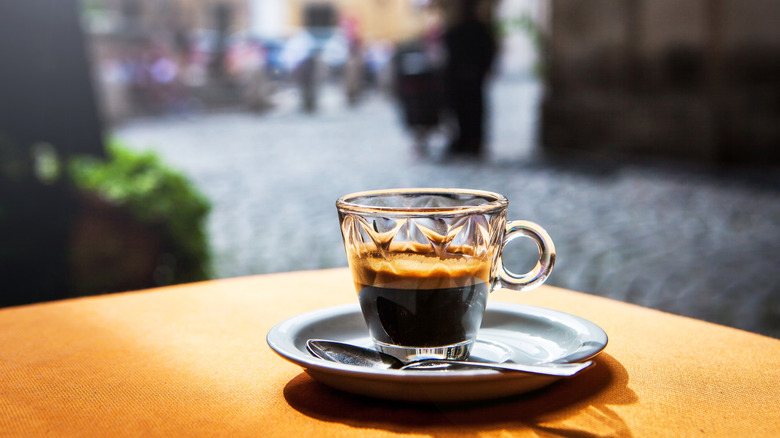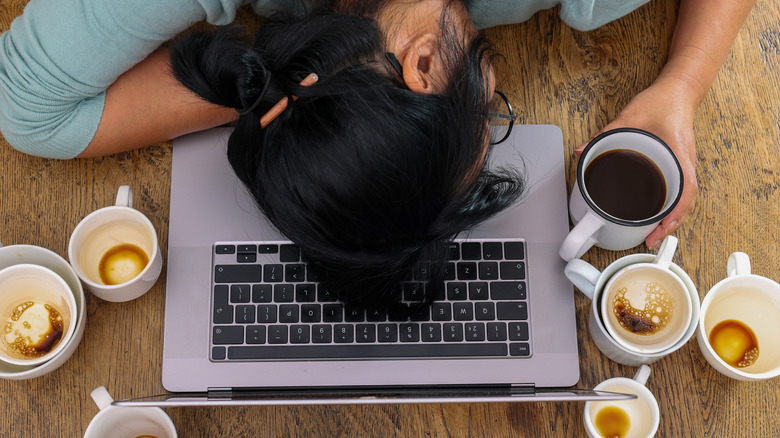Here's Why Italians Drink Espresso After Dinner (And Why That May Not Be A Bad Idea)
If you had just 24 hours to spend in Rome, there are a few famed culinary delights that would be on the must-try menu: Roman pizza, cacio e pepe, cannoli, and, of course, an espresso on the terrace. But that last one might come with a bit of culture shock, because while a morning pick-me-up is one common way to enjoy your caffeine, integrating yourself fully into Italian culture will almost certainly lead you to sipping a shot of espresso late at night, post-dinner.
To Americans, this might be surprising, since we're often told to limit caffeine intake after 2 or 3 p.m. if we want to ensure quality sleep. But Italians traditionally finish their evening meal with a shot of espresso, because it's said to help them digest their meal faster and easier — and it gives them a reason to linger at their table just a little longer before they go home. The ritual doesn't take long, given that Italians typically drink their espresso quickly, in one or two sips, and science backs up some of their ideas about gut health. Espresso also has less caffeine than a cup of black coffee, making it less likely that you'll face the consequences of severe insomnia if you choose to partake in this tradition. For context, a single shot of espresso typically contains just over 60 milligrams of caffeine, while an 8-ounce cup of brewed coffee has around 100 milligrams. That said, the effects of caffeine are always going to vary person-to-person — worst case scenario, accept that you won't be getting much sleep and use the caffeine to fuel you for a busy night out (or a productive night in).
Weighing the pros and cons of post-dinner caffeine
Have you ever eaten a big, filling meal, and then found yourself unable to do much more than lay on the couch, feeling weighed down and lethargic? (Think Thanksgiving.) While several factors can contribute to this, one likely culprit is the amount of energy your body is using to digest the food you just ate, especially if the meal was protein-rich. Coffee is a natural stimulant for digestive hormones and hydrochloric acid, both of which help break down the food in your belly, while giving you energy to counteract the lethargy of a full stomach. And beyond that, just as you might order dessert on a successful date to prolong the time you spend in each other's company, ordering a post-dinner espresso extends your meal by a few minutes, allowing you to sit and savor the time companionably.
That said, studies also show that drinking coffee after a meal can negatively impact your body's ability to absorb iron. With some studies estimating that nearly a third of women under age 50 are iron deficient, a condition that can cause fatigue, lightheadedness, and a weaker immune system, it's important to consider whether drinking coffee after eating an iron-rich dinner is worth the decrease of your food's health benefits. If you're curious, a simple blood test can let you know if iron deficiency is something you should be concerned about. And if this isn't an issue for you, but you do struggle with anxiety or insomnia when you drink coffee past noon, decaf coffee, which has about 97% less caffeine, can also be used to make espresso that's just as delicious.

